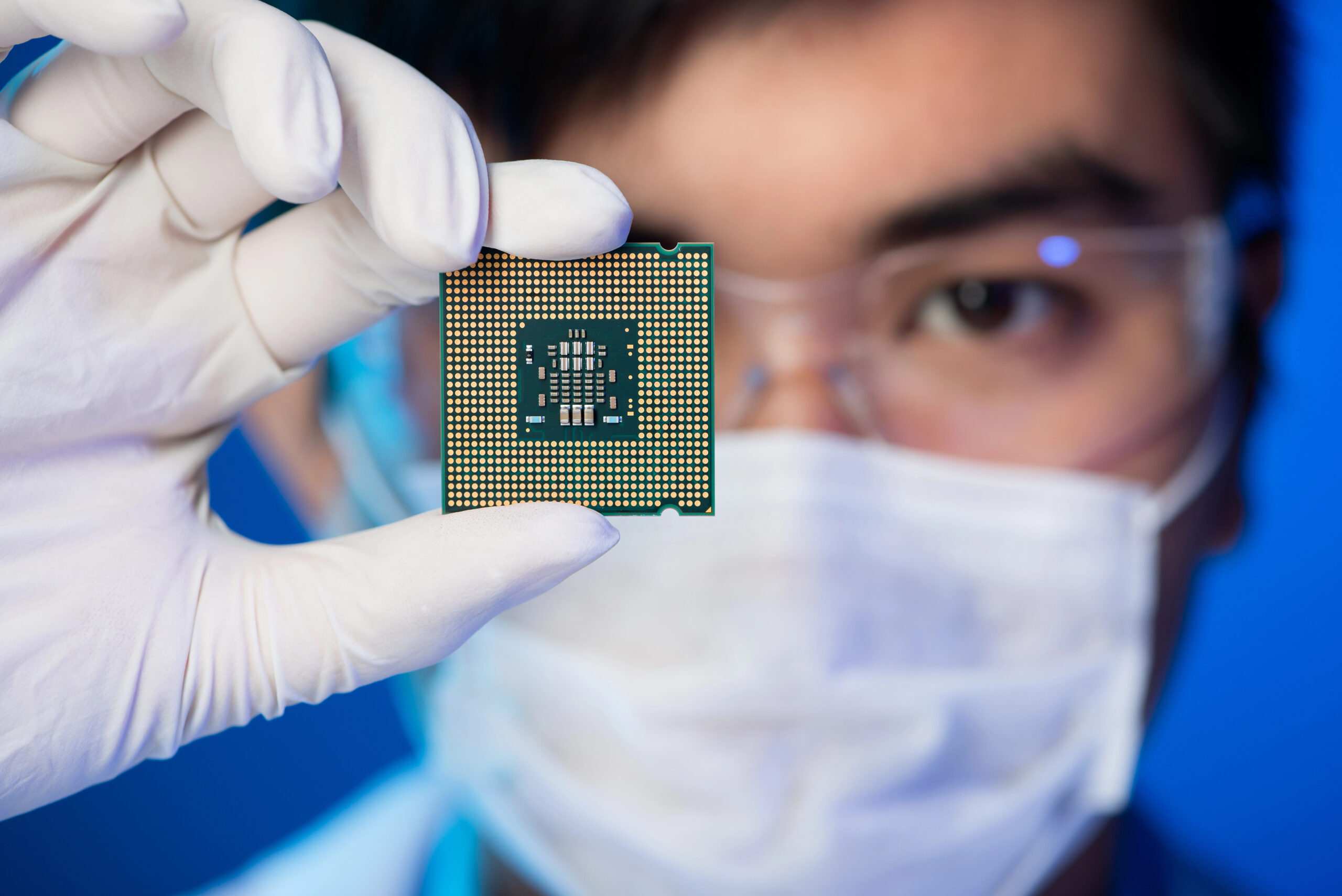Discover AI’s profound impact on data center expansion and the semiconductor industry over the years. The rapid growth of AI applications has led to an unprecedented demand for computational power, driving the need for larger and more sophisticated data centers. This surge, however, is not without consequences. Find that the increasing reliance on advanced semiconductors for AI processing is straining global supply chains, raising concerns about potential shortages. In this article, let’s explore how the AI boom is reshaping the landscape of data centers and semiconductor manufacturing, and what it means for the future of technology infrastructure.
AI Adoption Driving Massive Data Center Growth

The rapid adoption of artificial intelligence across industries is fueling an unprecedented expansion in data center infrastructure. As companies increasingly rely on AI to process vast amounts of information, the demand for robust computational power has skyrocketed. This surge in AI-driven workloads is reshaping the landscape of data centers worldwide.
AI Exponential Growth in Data Processing Needs
The sheer volume of data generated by AI applications is staggering. From machine learning algorithms to natural language processing, these sophisticated systems require immense computational resources. As a result, data centers are evolving to accommodate this exponential growth, with many facilities expanding their capacity and capabilities at an accelerated pace.
Specialized Hardware Requirements
AI workloads often demand specialized hardware, such as high-performance GPUs and custom-designed AI chips. This shift is driving significant changes in data center architecture and design. You’ll find that many facilities are now being built or retrofitted with AI-specific infrastructure, including advanced cooling systems and dense server configurations optimized for parallel processing.
Geographical Expansion and Edge Computing
The AI boom is not only increasing the size of existing data centers but also spurring the development of new facilities globally. Additionally, the need for low-latency AI processing is pushing computing power closer to the end-user through edge computing solutions. This distributed approach is creating a more complex and interconnected data center ecosystem to support AI’s growing demands.
Surging Demand for Advanced Chips Like GPUs
The AI-Driven Chip Crunch in Data Centers
As artificial intelligence (AI) continues to revolutionize industries, the demand for advanced semiconductors, particularly Graphics Processing Units (GPUs), has skyrocketed. These powerful chips are the backbone of AI computations, enabling complex algorithms to process vast amounts of data at unprecedented speeds. The surge in AI adoption has created a voracious appetite for these specialized processors, putting immense pressure on the semiconductor supply chain.
GPUs: The Workhorses of AI in Data
GPUs, originally designed for rendering graphics, have become indispensable in AI applications due to their parallel processing capabilities. They excel at handling the matrix multiplications and vector operations that are fundamental to machine learning algorithms. This unique architecture makes GPUs significantly more efficient than traditional CPUs for AI workloads, leading to their widespread adoption in data centers and AI research facilities.
Supply Chain Challenges
The exponential growth in demand for AI-capable chips has outpaced the semiconductor industry’s production capacity. Chipmakers are struggling to meet the needs of both the burgeoning AI sector and the established consumer electronics market. This imbalance has raised concerns about potential shortages and bottlenecks that could impede the pace of AI innovation. As companies scramble to secure their supply of these critical components, the semiconductor industry faces the daunting task of scaling up production while maintaining quality and innovation.
Potential for Major Semiconductor Supply Chain Disruptions
The Growing Demand-Supply Gap
As AI technologies continue to advance, the demand for high-performance semiconductors is skyrocketing. This surge is creating a widening gap between supply and demand, potentially leading to significant disruptions in the semiconductor supply chain. Data centers, which form the backbone of AI operations, are particularly vulnerable to these shortages. The increasing complexity of AI models requires more powerful chips, putting additional strain on an already stretched market.
Ripple Effects Across Industries
The potential semiconductor shortage isn’t just a concern for tech companies. Its impact could ripple across various sectors, from automotive to healthcare, that rely on AI-driven innovations. As competition for limited chip supplies intensifies, smaller companies and startups may find themselves at a disadvantage, potentially slowing innovation and market growth. This scarcity could lead to increased prices, longer lead times, and delayed product launches, affecting both businesses and consumers.
Strategies for Mitigating Risks
To address these challenges, companies need to adopt proactive strategies. Diversifying supply chains, investing in domestic chip production, and exploring alternative chip designs are some approaches being considered. Additionally, improving chip efficiency and optimizing AI algorithms to require less computational power could help alleviate some pressure on the semiconductor supply chain. As the situation evolves, collaboration between industry players, governments, and research institutions will be crucial in ensuring a stable and resilient semiconductor ecosystem for the AI-driven future.
Preparing for Bottlenecks in AI Development in Data Center
As AI continues to revolutionize industries, companies must proactively address potential bottlenecks in the semiconductor supply chain. To ensure uninterrupted progress in AI development, consider implementing these strategic measures:
Diversify Supply Chains
Relying on a single supplier for critical components can leave your AI initiatives vulnerable to disruptions. Expand your network of chip providers to mitigate risks associated with shortages or production delays. Cultivate relationships with multiple vendors across different geographic regions to create a robust, resilient supply chain.
Invest in Capacity Expansion
To stay ahead of the curve, allocate resources towards expanding your data center capacity. This forward-thinking approach will help you accommodate the growing computational demands of AI models. Consider partnering with chip manufacturers to secure dedicated production lines or investing in your own chip design capabilities.
Optimize Resource Allocation
Implement intelligent resource management systems to maximize the efficiency of your existing hardware. Utilize advanced scheduling algorithms and workload optimization techniques to extract the most value from your current semiconductor inventory. This approach can help buffer against short-term supply constraints while you work on long-term solutions.
By taking these proactive steps, you’ll be better positioned to navigate the challenges posed by potential semiconductor shortages and maintain your competitive edge in the rapidly evolving AI landscape.
The Critical Role of Semiconductors in AI and Data Centers
Powering AI’s Computational Demands
Semiconductors are the unsung heroes behind the AI revolution, serving as the backbone of data centers worldwide. These tiny chips play a crucial role in processing vast amounts of data required for complex AI algorithms. As AI models become increasingly sophisticated, the demand for more powerful and efficient semiconductors continues to surge.
Specialized Chips for AI Workloads in Data Centers
The AI boom has led to the development of specialized semiconductors tailored for machine learning tasks. Graphics Processing Units (GPUs) and Application-Specific Integrated Circuits (ASICs) are now essential components in AI-focused data centers. These chips offer superior performance for parallel processing and matrix operations, which are fundamental to AI computations.
Supply Chain Challenges
The exponential growth in AI adoption has put unprecedented pressure on the semiconductor supply chain. As data centers expand to accommodate AI workloads, manufacturers are struggling to keep pace with the demand for advanced chips. This bottleneck could potentially slow down AI innovation and deployment across industries.
Future-Proofing Data Centers and AI
To address these challenges, data center operators and AI companies are exploring ways to optimize their semiconductor usage. This includes developing more efficient chip designs, implementing advanced cooling systems, and adopting new architectures like neuromorphic computing. These strategies aim to maximize performance while minimizing the strain on the semiconductor supply chain.
Key Takeaways
It’s crucial to remain cognizant of the potential challenges posed by semiconductor supply chain disruptions. The surge in demand for advanced chips presents both opportunities and risks for businesses across various sectors. To stay ahead of the curve, consider implementing strategies to mitigate supply chain vulnerabilities, such as diversifying your sources and investing in long-term partnerships with chip manufacturers. By proactively addressing these challenges, you can position your organization to capitalize on the transformative potential of AI while minimizing the impact of potential shortages. The future of AI and data centers hinges on the semiconductor industry’s ability to meet growing demands, making it an area worthy of close attention and strategic planning.
More Stories
Android Instant Apps Retired After Years of Low Adoption
Google decides to retire Android Instant Apps by December 2025 as they struggled to capture user interest since its launch in 2017.
Bank Muamalat Unleashes ATLAS, Malaysia’s First Islamic Digital-Only Bank
Bank Muamalat has unveiled ATLAS, Malaysia’s first Islamic digital-only bank. As you explore this innovative platform, developed in collaboration with Dutch fintech leader Backbase, you will find a comprehensive suite of AI-driven, Shariah-compliant financial services at your fingertips.
OpenAI Cracks Down on State Sponsored Abuse of ChatGPT
OpenAI has taken a decisive step to thwart state-sponsored exploitation of its ChatGPT technology. As detailed in a comprehensive threat intelligence report, OpenAI has disabled numerous accounts implicated in cyber operations orchestrated by state actors from countries including Russia, China, and North Korea.
Record‑Breaking Rupiah Loan Powers AI‑Ready Batam Data Hub
They secured a historic record-breaking Rupiah 6.7 trillion loan from financial giants DBS and UOB. This monumental financing supports an AI-ready data center campus at Batam’s Nongsa Digital Park.
Google Closes Loophole That Let Hackers Bruteforce Your Hidden Phone Number
Recently, Google took decisive action to close a significant vulnerability that could potentially expose users’ hidden phone numbers to malicious actors.
Instagram Edits Brings In-App Teleprompter to Boost Creator Confidence
Introducing the in-app teleprompter within Instagram Edits, a tool designed to bolster your on-camera confidence and enhance viewer engagement.


